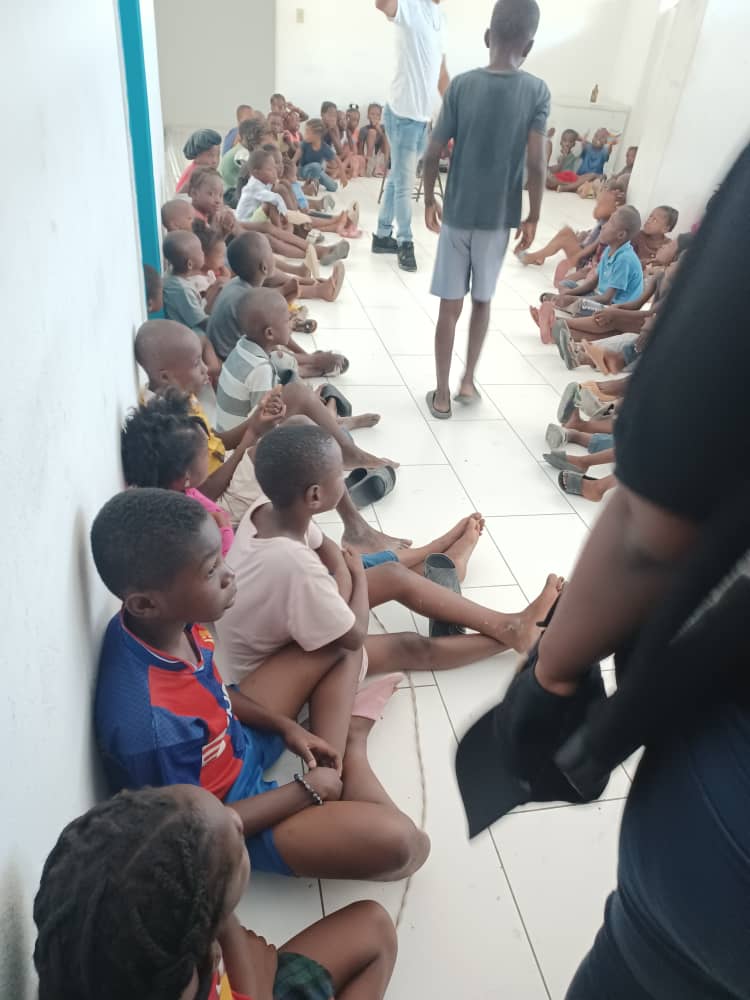SÃO PAULO, Brazil – Gang violence has led 580,000 Haitians to leave their houses and move elsewhere, according to a new UN report released earlier this week, with the Catholic Church also reeling from the chaos and rapid deterioration.
Many of the displaced people left the metropolitan area of Port-au-Prince and went to other provinces in order to escape the violence of the capital city, where 80 percent of the territory is under control of gangs.
The UN’s International Organization for Migration stressed that regions receiving the displaced don’t have the necessary infrastructure or social assistance to welcome them, something that can lead to tensions. The Haitian Church has not been able to do much in that context, since it’s equally suffering with the social turmoil in the Caribbean nation.
In March, the number of displaced people corresponded to 362,000, according to the previous IOM report. The fast deterioration of the situation in Haiti has led to the surprising growth in the internal refugee crisis.
“According to my information, no organized initiative has been taken at the congregational level. Those in the affected areas are not safe either. And they don’t have the means to help, just with occasional responses,” Father Firto Régis, who works at a school in Carrefour, a city near Port-au-Prince, told Crux.
Régis said most displaced are living with their families. The only Catholic institutions that have been able to help them are the schools, which in some locations are giving shelter to students who had to leave their homes.
That’s not the case of Régis’s school, given that it is located in an area which more and more residents are abandoning due to the growing violence.
“Our students took their final exams yesterday. Many of them and also many teachers will now move to other provinces or other districts where they can be safer,” Régis said.
He and his colleagues also expect to move at any time.
“We can’t abandon our house, unless we’re expelled by criminals – something that has been happening to many congregations,” Régis said, adding that in his region two schools and a house of formation have been invaded by gangs.
Jean-Claude Joseph, a Catholic activist in Jérémie, in the Grand’Anse department, told Crux that people have been arriving in large groups over the past few months, coming from the capital.
“They bring their bed, mattresses, and many other accessories by bus in order to live here. We see it everyday,” Joseph described.
He said that the arrival of people in great numbers has produced something like a food crisis in the region, with prices going up and a general lack of products.
“You look at the people’s faces and you see the marks of poverty and famine. Criminals stop trucks that are carrying basic items and make them pay a ‘tariff’. The prices only increase,” he said.
The Church has not been able to do much in such a critical context, Joseph said.
Sister Thérèse-Marie (she withheld her last name for safety reasons) used to live in one of the Port-au-Prince districts invaded by criminals a couple of months ago. She said that things became really difficult at the end of February, when armed bands began to launch coordinated operations against police stations, invaded one of the largest prisons in Haiti, and even attacked the airport.
“We lived only 7 miles away from the presidential palace. Every attack we heard was a terrible moment for us. We held out until April 1,” she told Crux.
On a certain day, a male community near her house was attacked. All day long, she and the other nuns had to hide, because the bandits were shooting with automatic guns and they feared getting caught by a bullet.
“Since then, we have been living elsewhere and trying to complete the school year in premises lent by generous people,” Thérèse-Marie said.
She said that most of the charitable work is being made on the community level, given that larger actions have been difficult to promote due to the continuous risk of being intercepted by armed men.
“Many people are trying to help with the little they have,” she said.
In March and April, her congregation promoted a movement called “Sunday Solidarity.” For six weeks, they gathered with other contributors from their community to offer a hot meal to 300 children. They were sheltered at an accommodation center with 2,000 families.
“We had to target the most vulnerable. That meal was often shared with the family,” she said.
Before the distribution, health workers assigned to the nuns’ health center (which was closed due to insecurity) offered hygiene sessions to the children.
“We chose to do it on Sundays because all other services were closed and many children would just not eat,” she explained.
Sister Thérèse-Marie said the nuns would also share with the displaced families anything they could give them, like bed sheets and other basic products.
Even after they left their house, they would keep going there in order to prepare and give the food to the children. Now, most of those families are gone, given that the gangs took control of the whole area.
“And now we’re part of the group of displaced people too,” she said.













